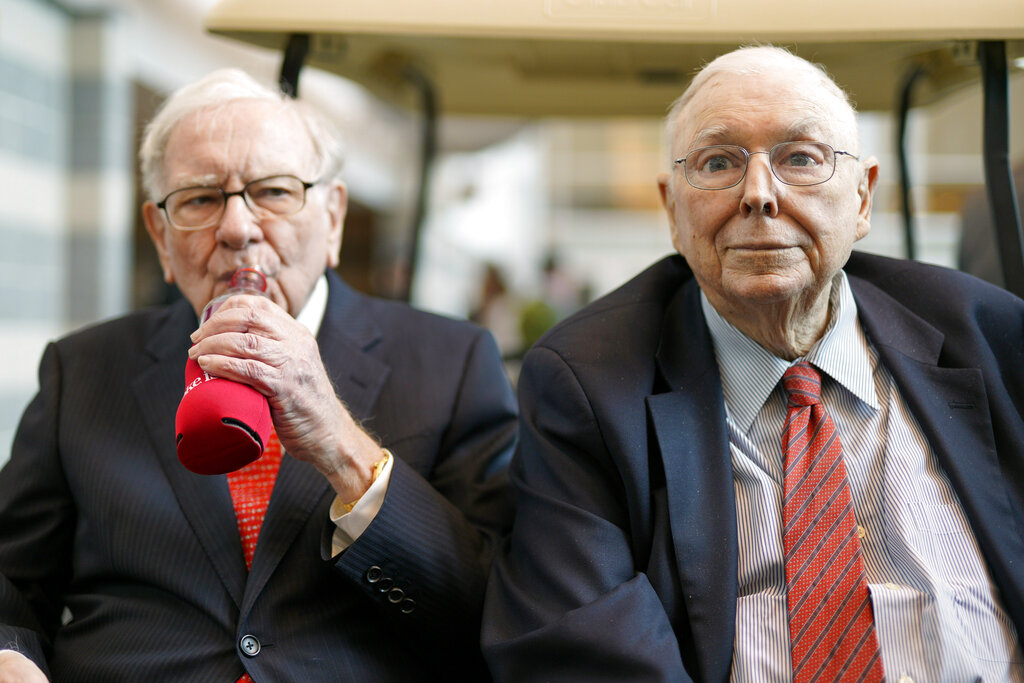Key Morningstar Metrics for Berkshire Hathaway
- Fair Value Estimate BRK.A: US$600,000
- Fair Value EstimateBRK.B: US$400
- Morningstar Rating: 4 stars
- Morningstar Economic Moat Rating: Wide
- Morningstar Uncertainty Rating: Low
Berkshire Hathaway Update
We knew Berkshire Hathaway Vice Chairman Charlie Munger’s passing was imminent, as he was nearly 100 years old and not in the best of health the past few years. It is certainly a spiritual loss for Berkshire Hathaway and for Munger’s investing partner of the past 60-plus years, Chairman and CEO Warren Buffett. In accordance with contemporary corporate operations, we don’t expect the event to have too significant of an impact on Berkshire’s wide economic moat or our $600,000 ($400) per Class A (B) share fair value estimate.
Close to a decade ago, we started noting in our research that the company would survive the eventual departures of Buffett and Munger, writing that the groundwork for a successful transition has existed since the start of the millennium, with Berkshire dedicating more and more capital to companies that could absorb the cash flow thrown off by its disparate operations, either through capital expenditures or bolt-on acquisitions. The key to Berkshire’s success over the years has been Buffett’s ability not only to find fruitful ways to put the firm’s excess capital to work, but also in paying close attention to culture and fit when acquiring companies.
We expect this to continue even after Buffett no longer runs the show, and we believe that Berkshire’s culture of management autonomy and entrepreneurship has to a large degree become institutional. That said, we do expect the managers who follow in Buffett and Munger’s footsteps to work with a slightly different opportunity set, gradually evolving Berkshire from a reinvestment machine into one that is more focused on returning capital to shareholders, which is what we would come to expect of a company of this size with dwindling investment opportunities.
We also recognize that eventually, when neither man is running the business, it is going to be difficult for the firm to replicate some of the advantages that come with having an investor of Buffett’s caliber, especially with Munger at his side for all these years enhancing Buffett’s talents. That said, we’ve long believed Berkshire to be the best possible example of what a decentralized conglomerate should be: a judicious allocator of capital, incurring minimal costs for shareholders. We expect those aspects of the business to continue regardless of who is at the helm.
As long as nothing is done to tamper with what has been a very efficient and effective operating structure, Berkshire should be able to survive the departure of Buffett and Munger in the long run. With all the company’s operating businesses managed on a decentralized basis, pushing responsibility for each business down to the subsidiary level and eliminating the need for layers of management control, the next set of managers should be able to focus on stewardship of the firm’s portfolio and capital-allocation decisions.
Berkshire Hathaway Stock Price





:quality(80)/cloudfront-us-east-1.images.arcpublishing.com/morningstar/FGC25JIKZ5EATCXF265D56SZTE.jpg)



:quality(80)/cloudfront-us-east-1.images.arcpublishing.com/morningstar/6ZMXY4RCRNEADPDWYQVTTWALWM.jpg)












